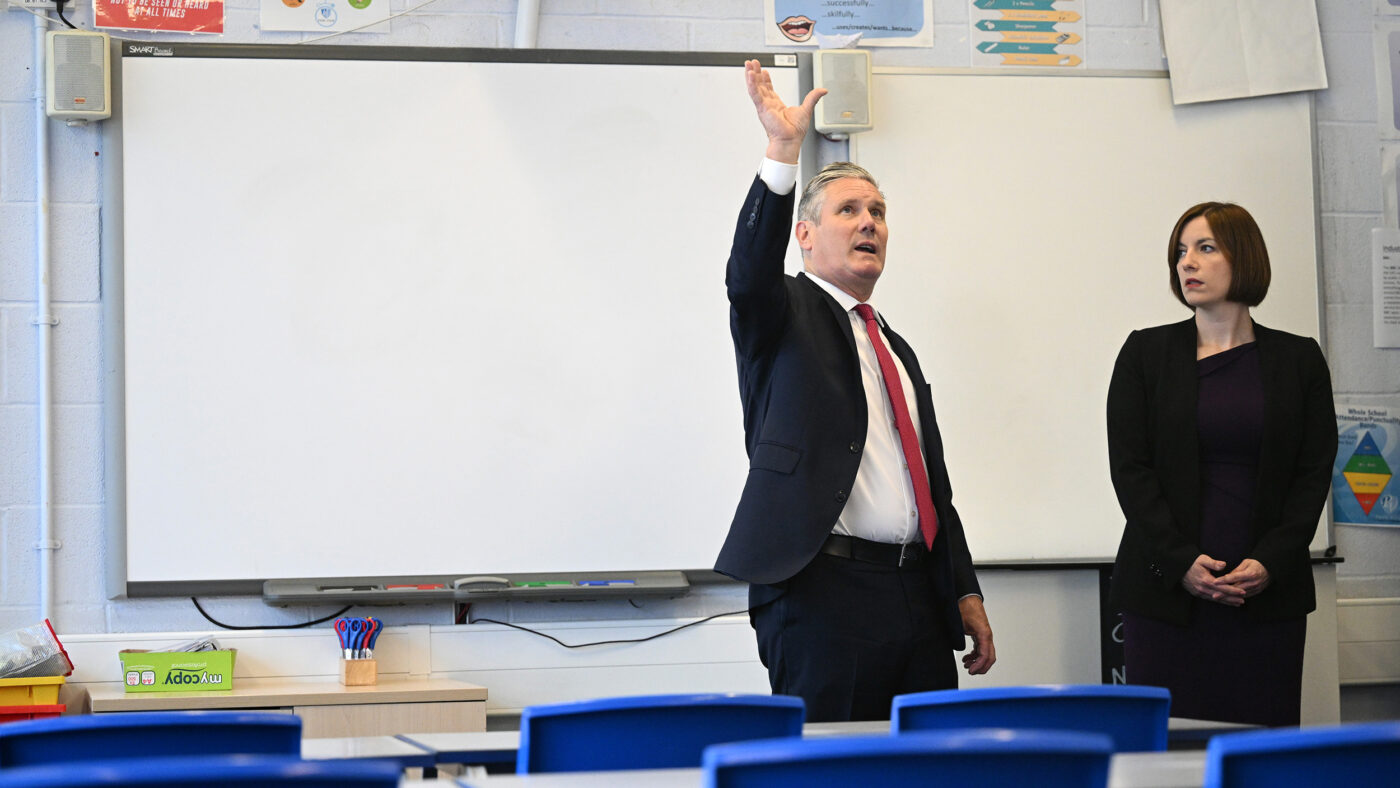Last week, Labour reaffirmed its intention to force private schools to add 20% VAT to their fees as well as pay business rates in their first year of power, should they win the next election. A policy built on the fallacy that somehow targeting the success of private schools will result in better state education, it is a proposal simply designed to service the age-old socialist propaganda that wealth is the exclusive enabler of ‘broken Britain’.
Politically, it is an odd move. A remnant of Corbyn’s hard-left manifesto, it does not do much to conform to their new image of a more sophisticated, nuanced style of left-wing governance. As with almost all Labour policies, the plan for a private school tax raid is based on an easily falsifiable foundation of flimsy figures. It does, however, give us insight into what a Starmer premiership may look like: a focus on governing in a way that is ‘morally acceptable’.
The Labour Party estimates that just 5% of pupils in private education will have to leave the sector as a result of an increase in the cost of school fees. They have claimed that this will give a Labour Chancellor an extra £1.6bn to spend. This figure, however, is based on an Institute for Fiscal Studies 2008 report that is methodologically flawed; the study is predicated on a very gradual rise in fees rather than a one-off hike, yet it underpins the entirety of Labour’s cost-benefit analysis.
Applying even the most modest reality check to the calculations, common sense dictates that increasing the price of a service by a fifth overnight is going to result in a higher percentage of pupils pushed out of private education, at a cost to the state of £6,899 per pupil. Additionally, schools or individuals would be able to absorb or reclaim some of that VAT, thereby reducing the tax receipts. That £1.6bn suddenly looks more like tens of millions, hardly worth of the disruption it would cause.
Much of the debate surrounding private schools has been based on the assumption that fee-paying schools are somehow fed by a nepotic artery of the public purse, at the expense of their state counterparts. Indeed, polling by YouGov showed that 52% believe private schools harm Britain ‘…and undermine the state school system’. This would indicate superficial support for the policy were it not for the fact the framing of the question disingenuously implies there is a fiscal link between independent and state schools. Even the term ‘tax break’ is conveniently added to compound this pretence of nefarious impropriety or advantage.
Labour initially claimed that this policy would be used to fund breakfast clubs for every primary school pupil (casually ignoring the absurd idea that a pupil forced out of a £9,000 a year village Prep school should be eligible for a state-sponsored breakfast). Now they say that the policy would be used to fund desperately needed mental health services in secondary schools. Even if the policy does raise as much money as Labour claim, they’ve already committed to spending it several times over.
As someone who has taught in a state school, I cannot say that our education system is a catalyst for the acquiring vast knowledge, an intense arena for critical thinking, or a theatre for intellectual debate. And we have to ask ourselves, how will yet another meaningless cheque of however many millions change that?
Labour’s misdiagnosis of the real problems faced by state schools, mediated by class envy and insincere promises of cash, obscures the real solutions we need to create a world-class and vigorous education system. Their nihilistic analysis that the only thing that could possibly remedy state schools is more money does a disservice to the pioneering techniques of schools like the Michaela School in Wembley, which have the same share of the budget as all other state schools, but ditch victimhood for aspiration.
Bolstered funding does nothing to address our outdated and uninspired national curriculum, particularly in science. Increasing the salaries of teachers may well prompt a rise in Newly Qualified Teachers but will not address the problem of staff retention, which is much more likely – as demonstrated in a recent Government report – to be influenced by the fact 85% of primary school teachers face disruption in their classrooms.
Labour seem far more interested in meddling in the metaphysics of class structure than actually transforming the lives of young people. One of the most significant things we could do to improve the educational outcomes is something that costs nothing: higher parental involvement in a child’s education, which is directly linked to higher academic attainment. Finland is often used as an example of a country that thrives without independent schools, but I suspect this is more to do with their culture of family cohesion than their lack of private provision.
Putting the detail aside, as a concept, this is an astonishing act of self-sabotage. It seems Labour are willing to actively decrease the educational talent pool, that supports our job market, by removing children from successful schools.
If anything, Labour’s private school policy is the epitome of discrimination – refusing to be inspired by the success of private schools, just because they’re private schools.
Click here to subscribe to our daily briefing – the best pieces from CapX and across the web.
CapX depends on the generosity of its readers. If you value what we do, please consider making a donation.


